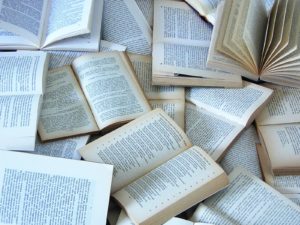
Great Books Volume 1: Indispensable Psychotherapy Classics
By far and away, one of the most common questions I get from students and supervisees is “what should I read to learn more about xyz?” Great question! And I love answering it, as well as teaching how to identify a good source (maybe that’s a good idea for a later post!).
I love to read books in the field, and I especially love to read the founding fathers and mothers of psychology and psychotherapy. I think this might come from having my own learning influences that emphasized primary source material, and also definitely from teaching Theories of Counseling and Psychotherapy. Textbooks never do justice to the real authors.
Definitely, in some later posts, I’ll talk some about specific books in more detail. Here, I’d like to give you a list of what I think are the best primary source books for psychotherapists. I’m defining “best” here as a combination of most foundational and most useful (so you’ll notice that Freud doesn’t make the list, even though he’s FREUD. And other favorites like William James’ Principles of Psychology. Sigh. Another day.) I’m also going to (painfully) limit myself to one per author.
- On Becoming a Person (Carl Rogers)
- What Life Could Mean to You (Alfred Adler)
- The Undiscovered Self: The Individual in Modern Society (Carl Jung)
- Your Many Faces (Virginia Satir)
- The Gestalt Approach and Eye Witness to Therapy (Fritz Perls)
- Focusing (Eugene Gendlin)
- I’m OK, You’re OK (Thomas Harris)
- Warning: Psychiatry Could Be Hazardous to Your Mental Health (William Glasser)
- Strategies of Psychotherapy (Jay Haley)
- The Doctor and The Soul (Viktor Frankl)
- Life Without Fear (Joseph Wolpe)
Ok, I can already tell that future lists are imminent! There are SO many books that I’m having trouble not listing! But start with these. You’ll be glad you did!
Comment below and let me know the book you think I missed!